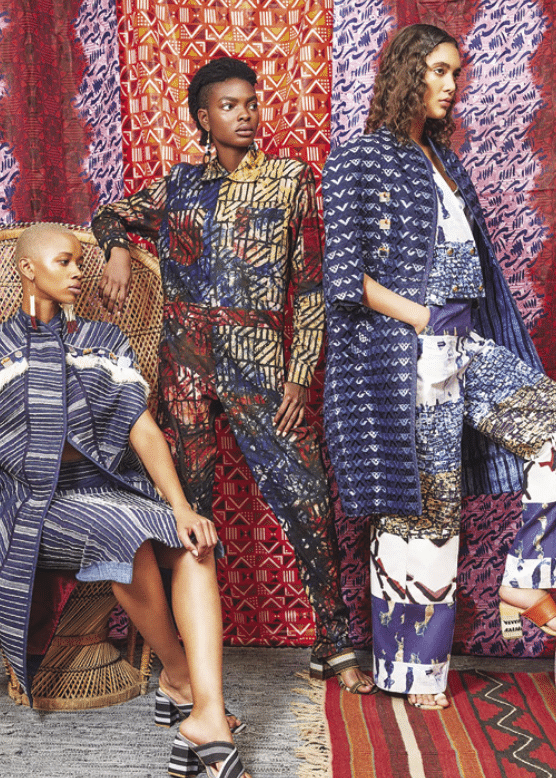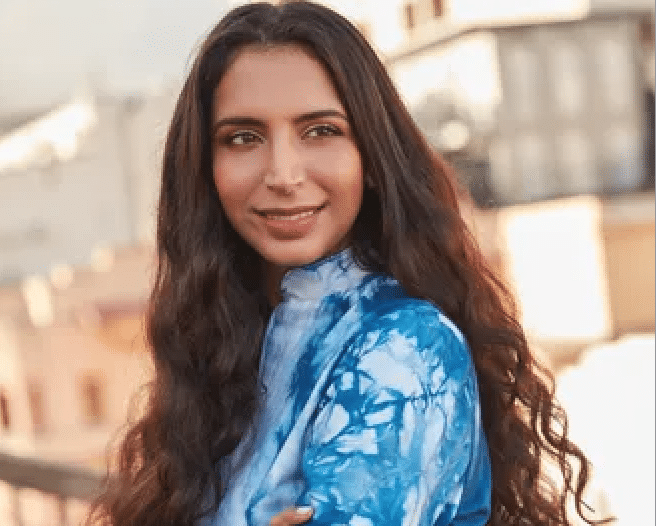Entrepreneur Nisha Kanabar is elevating the vernacular African fashion space employing content and engagement.
BY INAARA GANGJI
AFRICAN FASHION IS MORE THAN JUST patterns and traditional garb, and contrary to popular opinion, is modern and evolving. This is how fashion entrepreneur Nisha Kanabar,
a fourth generation Tanzanian and graduate of the Parsons School of Design in New York, sees it and is bent on changing the prevailing narrative from her base in Dar es Salaam.
When she started her career, this view of African fashion, or any, was almost non-existent, or if anything, painted with broad brushstrokes. There was almost a need to deconstruct Eurocentric standards, engage with cultures outside of homogenous cliches and curate to fit locations and audiences.
Throughout her tenure working in the fashion industry abroad including for reputed fashion magazines in the United States, India and the Middle East, she noticed how storytelling could connect audiences to creatives.
This was the genesis of Industrie Africa, her global retail destination for contemporary and luxury African fashion born in 2018, drawing on her upbringing in Tanzania and her views on diversity, identity and culture, which she deems inherently pluralistic.

“What hopping around different markets taught me was the potential that the media has in transforming perceptions,” says Kanabar, who has worked both in fashion editorial and commercial fashion.
Her first experience in an emerging market, while at Vogue India, opened her eyes to the value of detail and context as the powerful voice of creatives and designers.
She says Industrie Africa thus showcases luxury pan-African brands through the principles of storytelling, thought, leadership and education, working with its designer community to deliver straight from their studios to anywhere in the world.
“When I moved back home [to Tanzania] in 2016, I realized the gaps in the [fashion] industry. There was a lack of accuracy and in how it was portrayed globally, but there was also a regional disconnect,” she stresses.
“There’s a lack of diversity in general [internationally]. So [this was] as an answer to this fractured, underrepresented fashion industry to really offer
the media and fashion stakeholders clear, cohesive access to the market in a way they haven’t had access to before.”
Starting Industrie Africa also meant understanding who the audience for luxury pan-African fashion was and what they desired in terms of sectorial knowledge.
Kanabar also noted a lack of access and infrastructure. How could she create a retail platform without even the basic fundamentals in place?
“From the initial launch, we began to cultivate this really engaged community and then just started digging deeper and realized that there was an overwhelming demand for consumer products when it came to Africa, and African luxury in particular, and also African-led content.”
This led to the launch of Industrie Africa’s e-commerce platform in 2020, challenging the constructs of what people perceive stereotypical African fashion to be and to highlight pan-African voices through an intuitive global editorial framework and lens.
“It’s kind of to raise the bar in storytelling when it comes to our continent, because I don’t feel like we have the right voices from within to gather and supercharge and create content in an elevated way, so that that was kind of part of the mission,” she says.
“The way we work with our designers is that we curate in a way that elevates them and elevates our product narrative and elevates everything to an international standard.”
There is also the emphasis on sustainability.
The high-end fashion industry in Africa has few content platforms and less knowledge-sharing around it.
Kanabar believes that you cannot push retail without storytelling and that engagement cannot be nurtured without it.
“[Industrie Africa] is uniquely tailored to the ecosystem that we belong to, so it’s not a copy-paste model by any means, it’s very much integrated like a puzzle piece within our environment…. what we
do is we’re able to contextualize the African fashion experience in a very authentic way which hasn’t been seen before. It’s this immersive experience that allows you to engage with the industry on your own terms and whatever that means to you.”
But the challenge remains to function in an industry with little infrastructure and high-risk. The digital and regulatory infrastructure is not advanced enough and working with a fully remote team is even more difficult. Getting the goods to customers through international shipping is also tricky.
“[Things are] so unpredictable being an African e-commerce business and another thing is probably that there’s not a lot of data. Our target markets are undefined and under-researched in so many ways, it’s less clear exactly who your customer is. That’s such a new space for us that we are kind of trying things or throwing things at the wall and seeing what sticks,” she rues.
Yet she is hopeful and believes digitization will increasingly become the norm, leading to increased collaboration and independence. She also advocates local content.
“There’s so much more to be connected with. There’s so much more pride in what we have around us.”
Kanabar is also keen on promoting knowledge.
“I think fashion education is something that is going to be really major that we can anticipate seeing in the next few years. It’s where you’re avoiding the copy-paste model, where you’re moving away from the fashion curriculum being westernized; and designers are becoming mentors,” adds Kanabar, who is also on the board of the Council for International African Fashion Education.
“We are just working on increased access to resources for the next generation of creative talent and the next generation of fashion professionals.”
